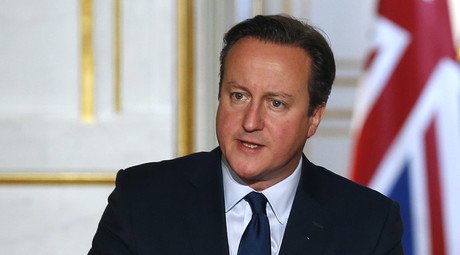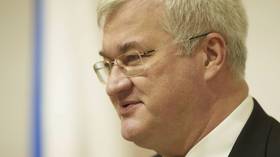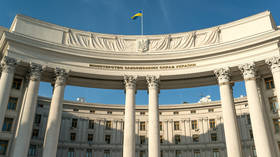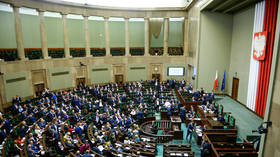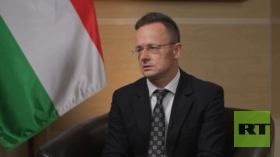NATO-member Turkey defending Islamic State while killing Kurds
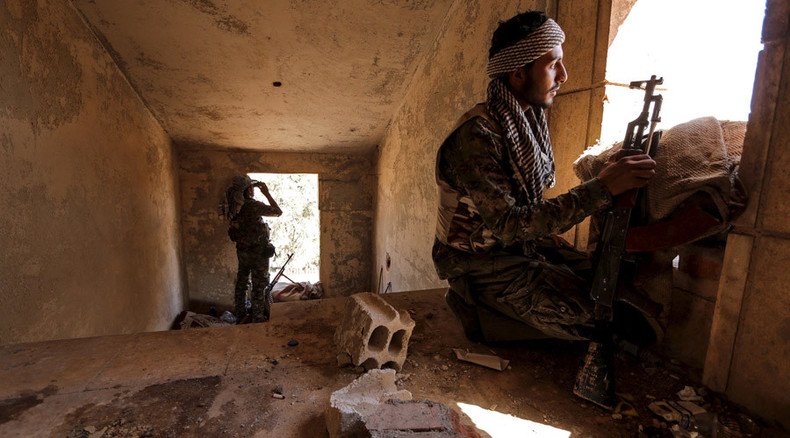
Since the creation of the Turkish state in 1923, the Kurdish people have suffered egregious human rights abuses from Ankara – from massacres to the denial of their very existence as a race. Today the killing continues under the guise of fighting terrorists in Syria.
With the battle against Islamic State on the territory of Syria going full throttle, it appears that Turkey is using the opportunity to continue its decimation of the Kurds.
Since July 24, when Turkey jumped into the Syrian cauldron, the Turkish Air Force has largely ignored Islamic State fighters, saving its smart bombs instead for Kurdish fighters who have been on the front lines battling Islamic State. Ankara has also cracked down on the Kurdish population at home, arresting more than 1,000 Kurds across Turkey.
From the Zilan massacre (1930) to the Dersim massacre (1937), the Kurds have witnessed endless violence against their people. In fact, until 1991 the Turkish government categorized Kurds as "Mountain Turks" in an effort to deny these people their very existence as a separate race.
Srdja Trifkovic, foreign affairs editor for the magazine Chronicles, said the Turkish Air Force dropped the vast majority of their bombs not on Islamic State positions in Syria, but on those very groups fighting this terrorist scourge, namely the Kurds and the Syrian Army.
“Over 80 percent of the tonnage of their bombs would drop on the Kurds fighting ISIS in Northern Syria and North Western Iraq,” Trifkovic told RT. “Turkey has been consistent in pursuing its own agenda which is to pretend to be fighting ISIS while settling scores with the two parties that are actually capable of fighting ISIS on the ground.”
"It is perfectly consistent with Turkish behavior since it ostensibly joined the anti-ISIS campaign last July,” he added.
But that is just part of the story. The NATO member is not only opportunistically attacking a political foe instead of a bona fide terrorist threat, but is actually helping to fund them.
Larry Johnson, retired CIA and State Department officer told RT: “Turkey has been a major instigator, major sponsor of terrorist activity, of the activity of these radical Islamists and for them to pretend otherwise as a joke.”
Perhaps it was no coincidence that Russian President Vladimir Putin chose the G20 in the Turkish city of Antalya to disclose the shocking information that terrorism is being financed by individual businessmen from 40 countries, including from member states of the G20.
"I provided examples related to our data on the financing of Islamic State units by natural persons in various countries. The financing comes from 40 countries, as we established, including some G20 members," Putin told reporters following the summit.
This earth-shattering news barely registered a blip on the Western mainstream media radar.
Just days after Putin's hot potato landed in the lap of the Western elite, a Russian fighter jet on a mission to take out Islamic State targets was shot out of the sky by two Turkish F-16 fighter jets – without due warning or provocation.
One of the pilots was reportedly killed by ground fire from 'moderate rebels' with ties to Turkey.
Turkey says the Russian aircraft had breached its territory for some 17 seconds, a ‘violation’- if true – nevertheless happens on a regular basis between national air forces around the world. Normal operating procedure demands that Turkey should have warned the Russian pilots and escorted them out of the area.
Following this regrettable incident, Paul Nuttall, UKIP Deputy Leader, said the question must be finally asked: “Whose side is Turkey on?”
“There is evidence that Ankara is purchasing oil off ISIS,” Nuttall told RT. “If you remember, the Turkish did absolutely nothing in the siege of Kobani. It seems that if Turkey is more worried about the threat of the Kurdish population than it is about IS.”
Retired US General Wesley Clark, in a recent interview with CNN, agreed with that assessment: “Someone’s buying that oil that ISIS is selling, it’s going through somewhere, it looks to me like it’s probably going through Turkey.”
The willingness of Turkish government to take advantage of its NATO membership to inflict damage on a marginalized national group shows the depths the government of President Recep Erdoğan will go to fulfill his own agenda. It also shows how dangerous military blocs – like NATO - can be when unpredictable states gain affiliation in them.
So while the United States had long sought Turkey’s assistance in Syria, using the Incirlik Air Base to launch attacks against (allegedly) Islamic State, the events since the agreement show a dangerous divergence of interests in the region.
It’s definitely time to close the border between Turkey and Syria, and put an end to the war profiteering, supporting terrorists and opportunistic settling of political scores by Ankara.
The statements, views and opinions expressed in this column are solely those of the author and do not necessarily represent those of RT.

